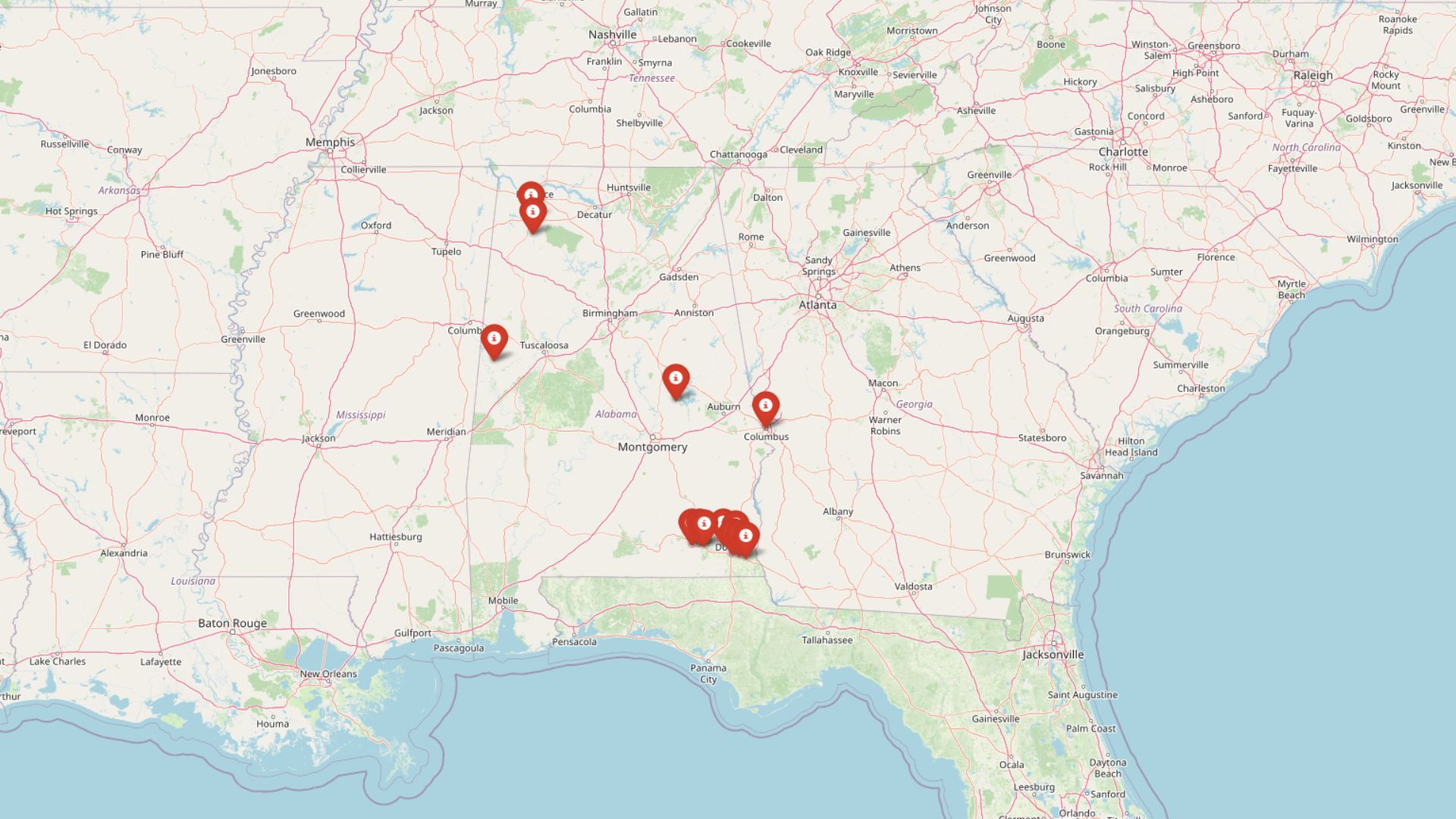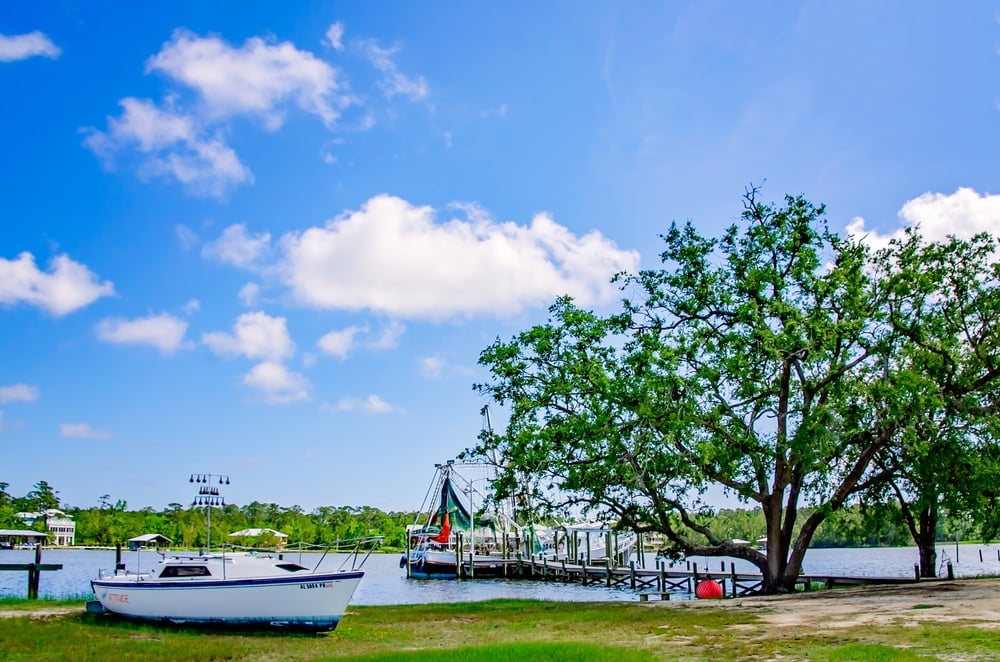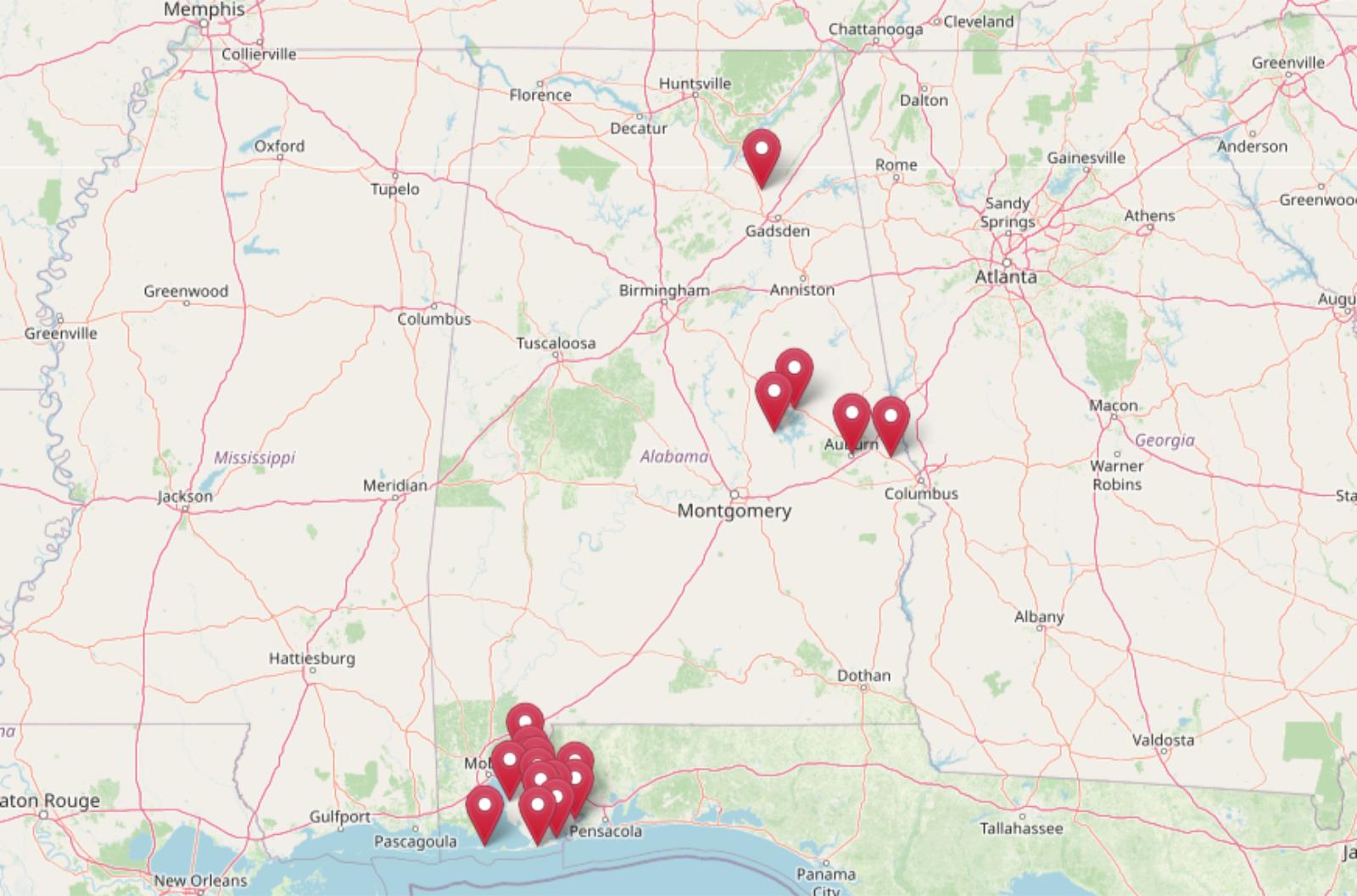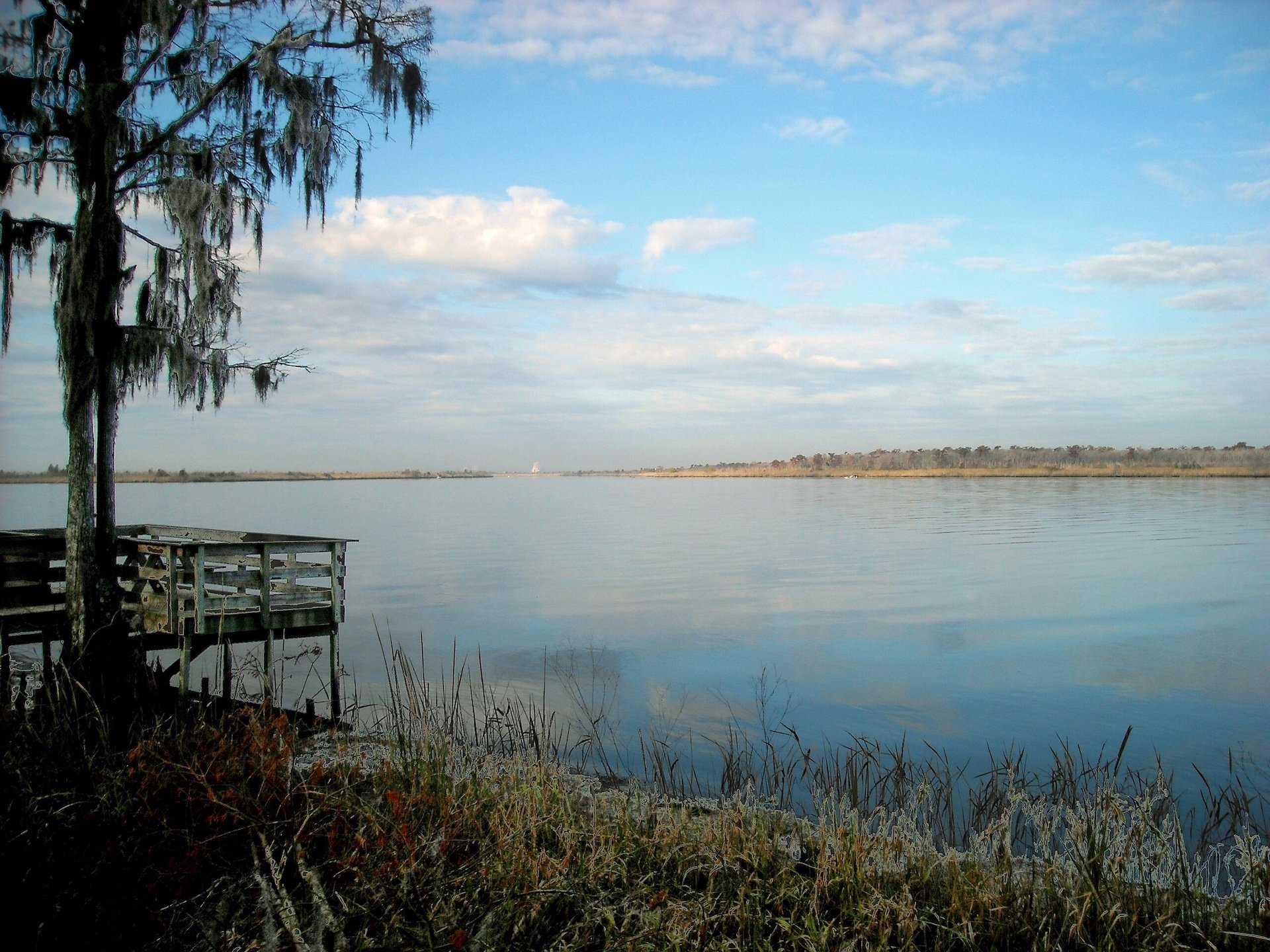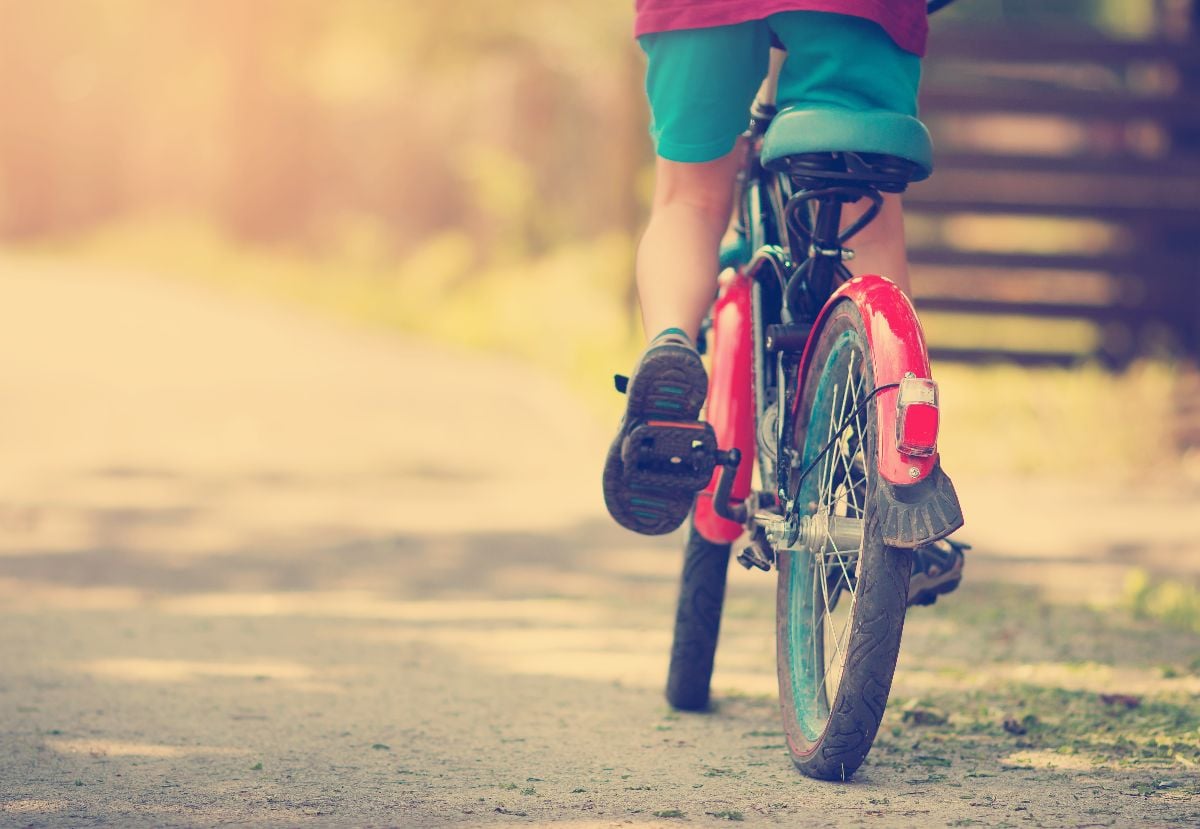
Would you like to save this?
You think you understand ’80s childhood? Try growing up in Alabama when air conditioning was still a luxury in some houses, sweet tea was a food group, and your after-school entertainment involved more creativity than Netflix algorithms.
Alabama kids in the ’80s didn’t just kill time after school—they invented entire universes using nothing but Southern ingenuity and whatever they could find in the backyard.
25. Rode Bikes to the Dairy Queen for 50-Cent Ice Cream
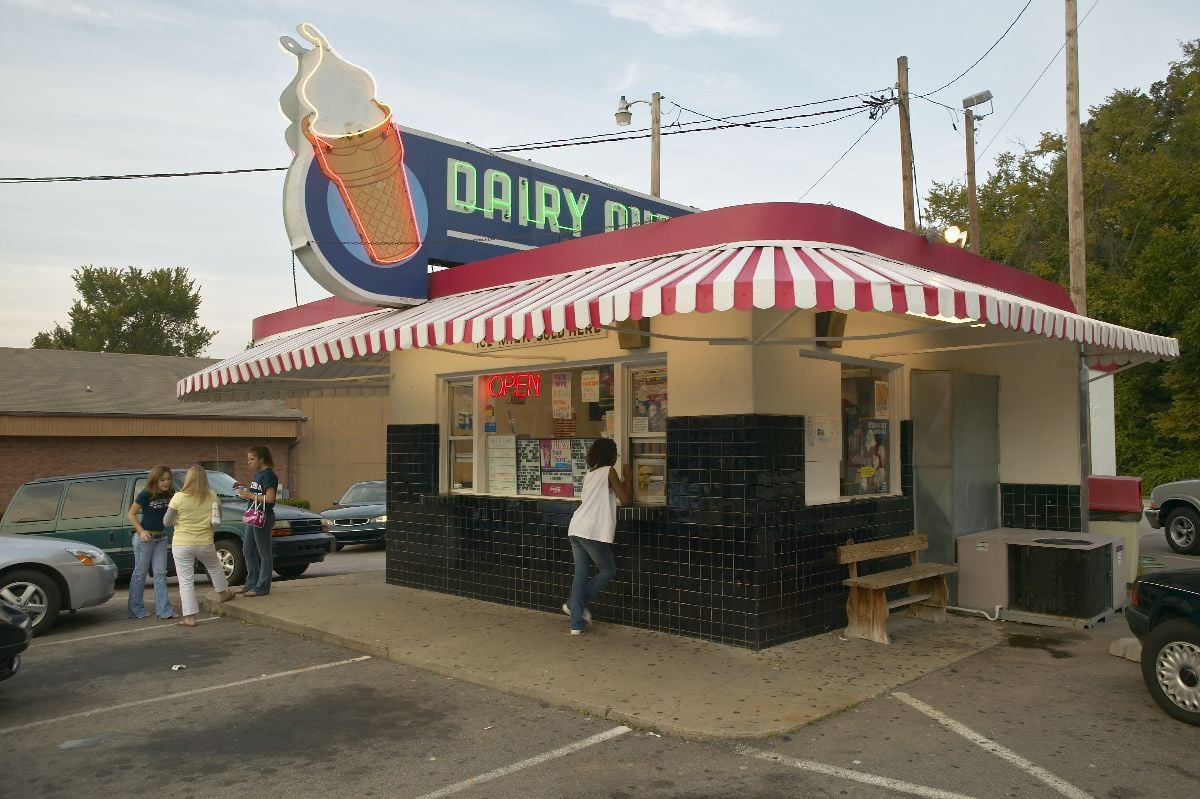
The local Dairy Queen wasn’t just an ice cream shop—it was your neighborhood’s social headquarters and the reward destination for any successful bike expedition. A soft-serve cone cost fifty cents, and that felt like a reasonable investment in happiness.
You’d ride there with friends after school, pool your lunch money, and make those cones last as long as possible while sitting on the curb discussing important matters like who had the coolest bike and whether the Auburn or Alabama game was going to be good this year.
The bike ride was half the fun. Alabama back roads were perfect for cycling adventures, and Dairy Queen gave you a destination worthy of the effort. Plus, the air conditioning felt like heaven after riding bikes in Alabama heat and humidity.
24. Built Forts in Kudzu Vines
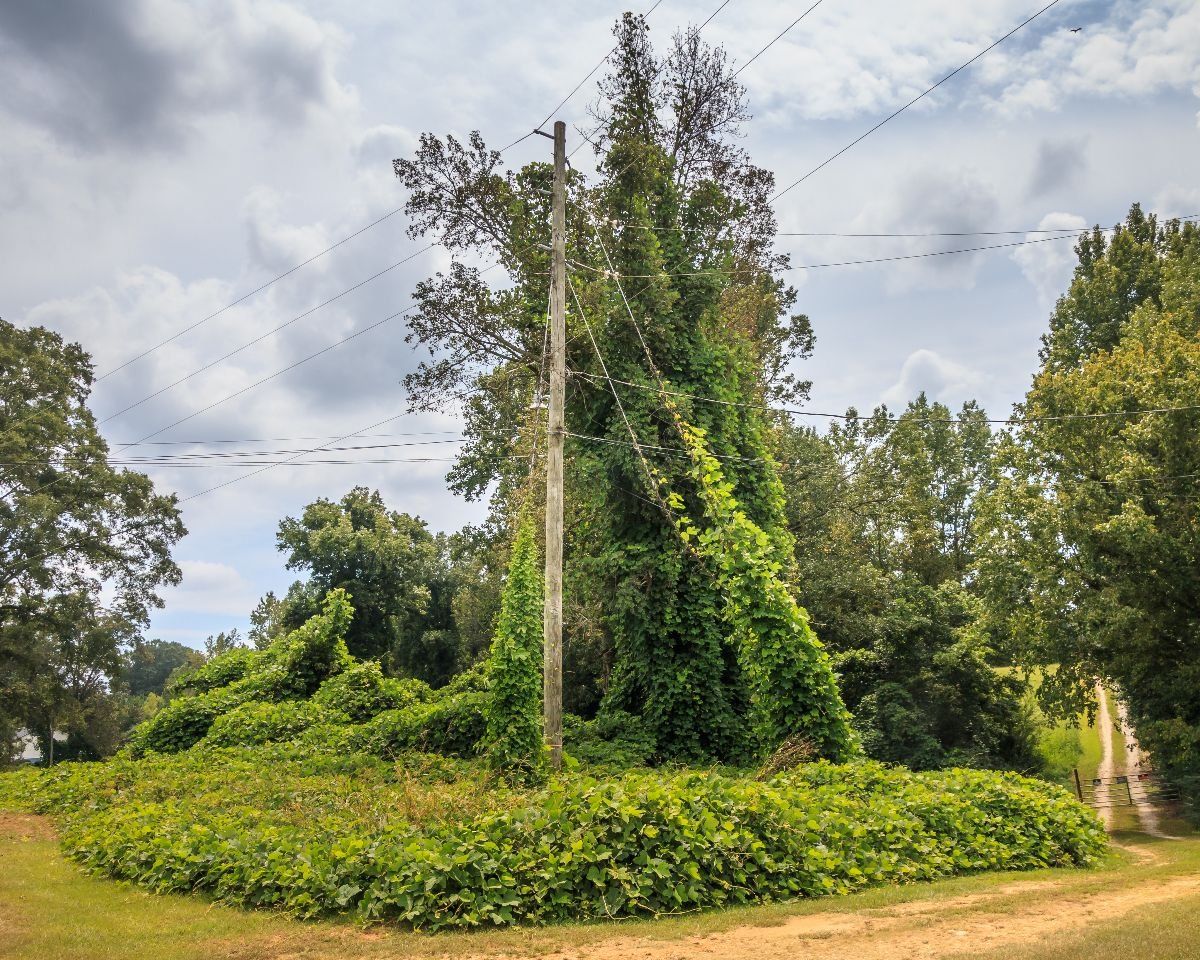
Kudzu wasn’t just an invasive plant problem—it was free construction material for the most elaborate hideouts you could imagine. Those thick, tangled vines created natural fortresses that were cooler than any tree house and required zero carpentry skills.
You’d find a good kudzu patch, clear out the inside, and create multi-room complexes with lookout points, secret entrances, and storage areas for important supplies like comic books and contraband candy. The vines grew so thick they provided genuine privacy and shade.
Alabama’s kudzu problem became Alabama kids’ entertainment solution. You were basically living in green mansions that nature built for free, and somehow this felt more exciting than any store-bought playground equipment.
23. Watched “The Afternoon Movie”
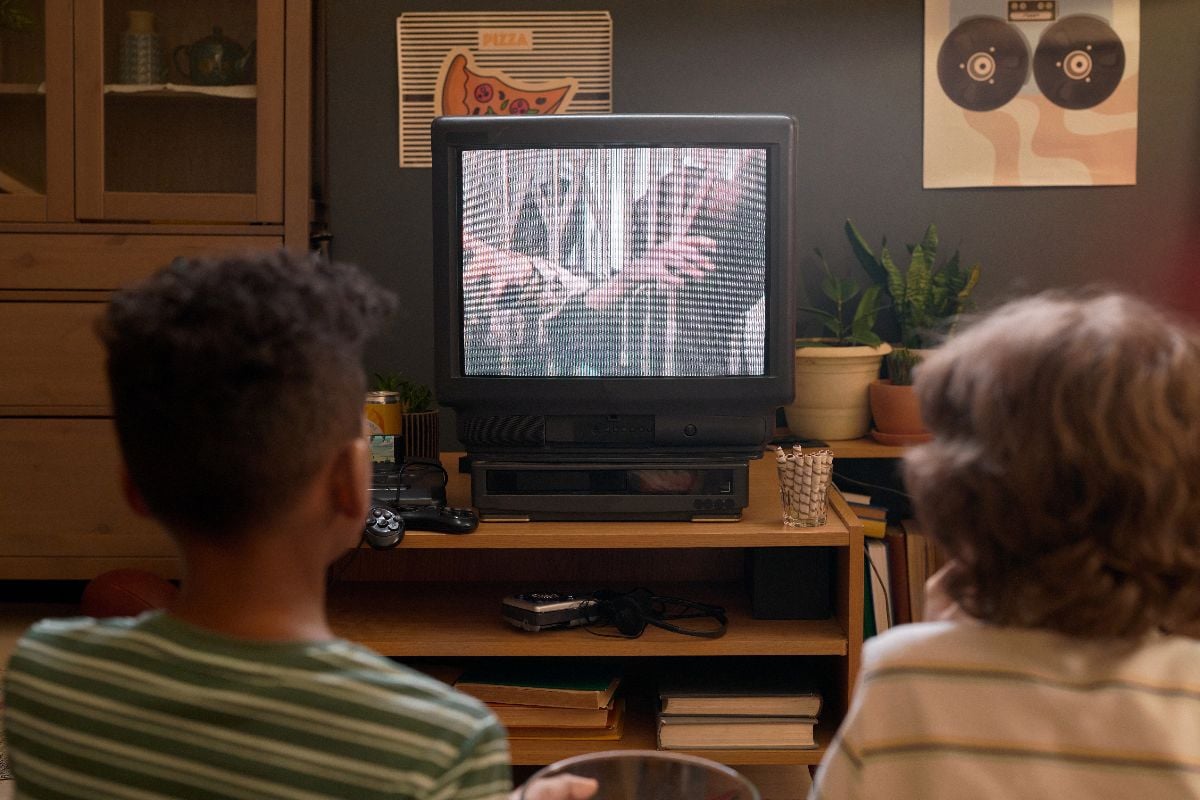
Afternoon movies on local stations were appointment television before anyone used that phrase. They’d show classic movies, B-movies, and random films that introduced you to genres and actors you’d never heard of but somehow became favorites.
You’d plan your after-school schedule around whatever movie was playing. Westerns, horror films, comedies from the ’50s, and occasionally something actually current. The commercials were local businesses, and somehow that made everything feel more personal and connected to your community.
These movies became your film education and cultural foundation. You’d discover Cary Grant, John Wayne, and Abbott and Costello through afternoon reruns that modern kids would never have the patience to watch.
22. Caught Lightning Bugs in Mason Jars
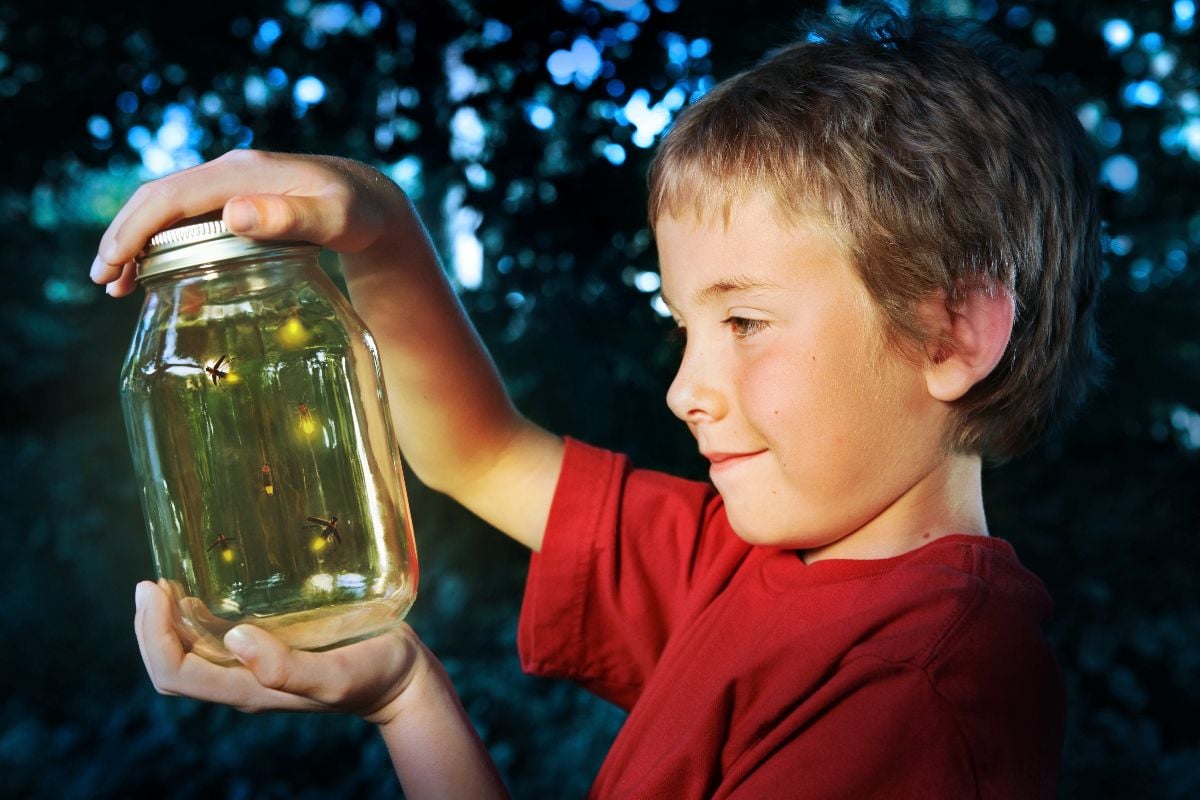
Kitchen Style?
Lightning bugs weren’t just insects—they were magic creatures that turned Alabama summer evenings into fairy tale experiences. You’d spend twilight hours running around the yard with mason jars, creating your own lanterns from captured fireflies.
The art of lightning bug catching required patience, quick reflexes, and the understanding that you’d release them before bedtime because keeping them overnight felt mean. You’d compete to see who could catch the most, then let them all go at once for a magical light show.
Alabama evenings were perfect for lightning bug hunting. The humidity that made everything else miserable somehow made the fireflies more active and the whole experience more memorable.
21. Played in Creek Beds Looking for Crawfish
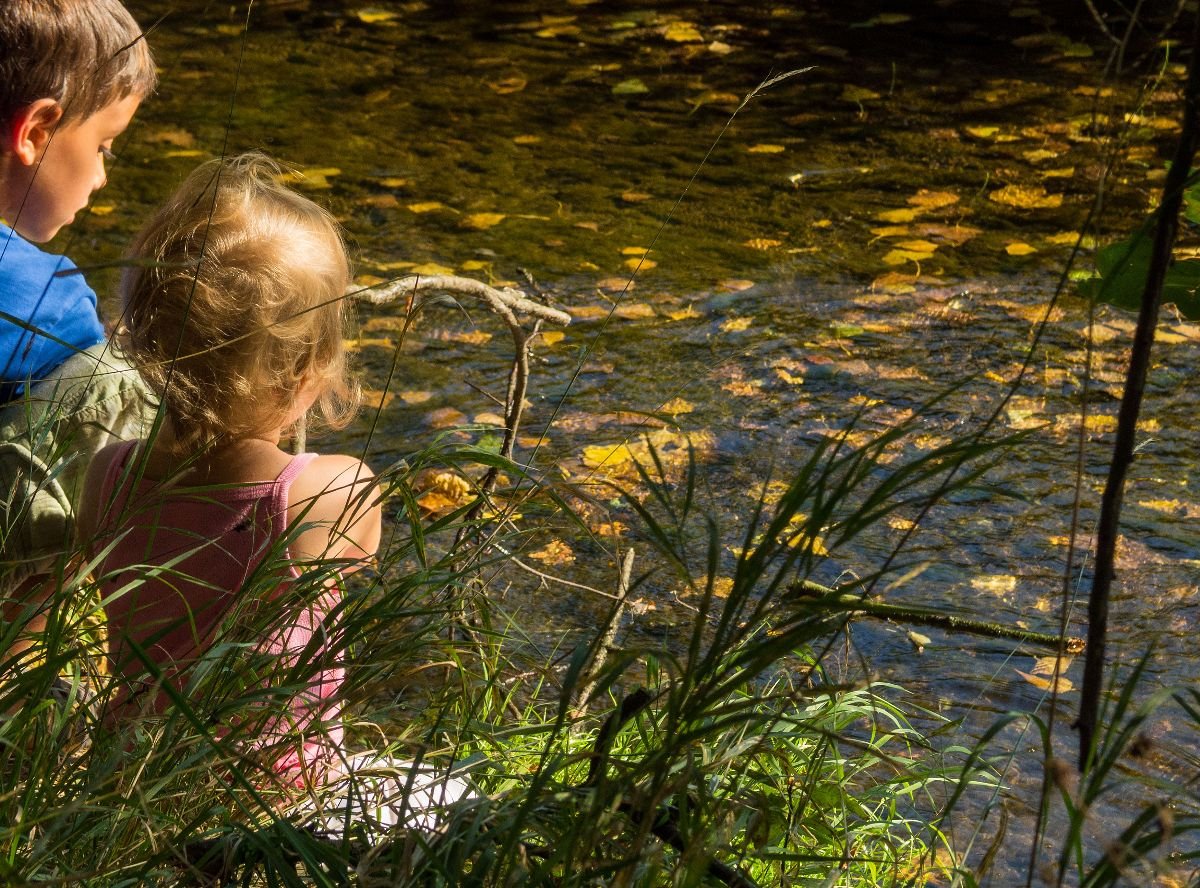
Alabama creeks were natural playgrounds where you’d spend hours catching crawfish, building dams, and getting completely soaked while your parents somehow trusted you to come home alive. Creek exploration was an adventure and education rolled into one muddy experience.
You’d flip rocks looking for crawfish, create elaborate water channels, and discover that Alabama streams were full of life that city kids never got to see. Catching crawfish required skill, patience, and the willingness to get pinched occasionally.
Creek time taught you about nature, water management, and the satisfaction of getting completely dirty while learning things they didn’t teach in school. Plus, the water felt amazing after walking home from school in the Alabama heat.
20. Made Mud Pies in Red Clay
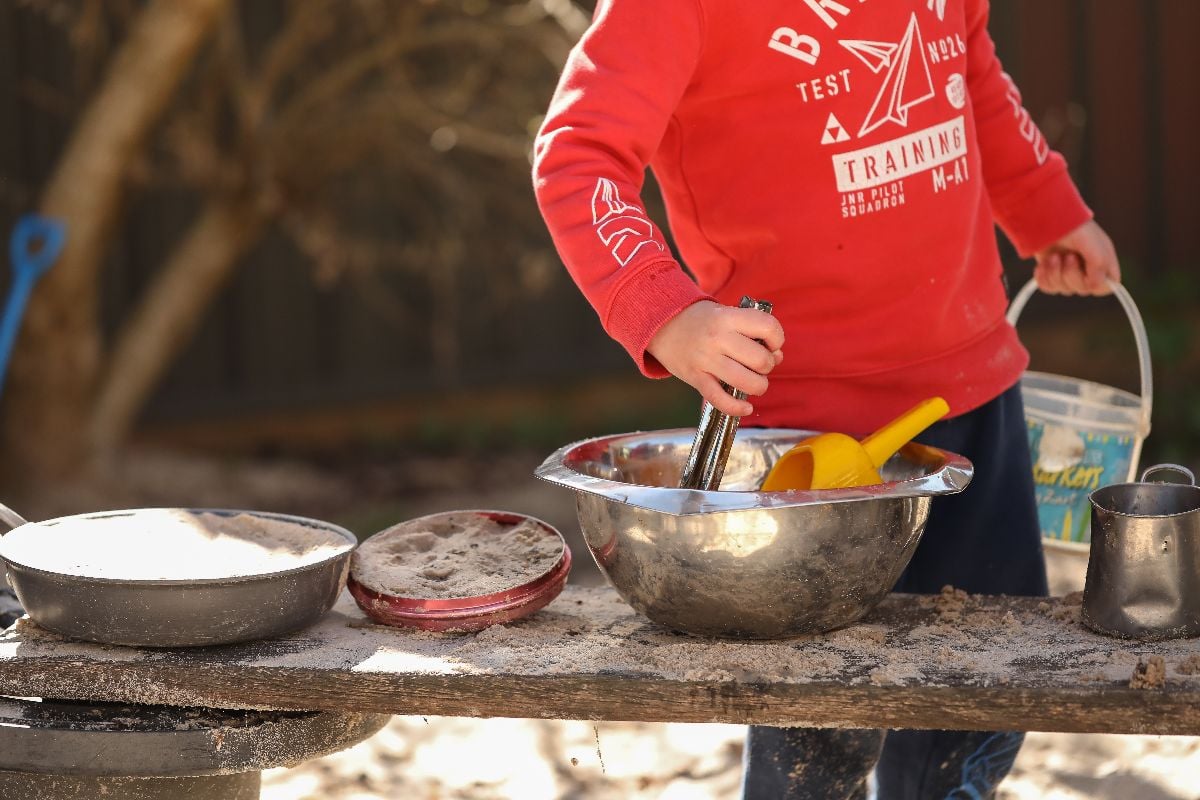
Alabama red clay wasn’t just soil—it was a premium crafting material that stained everything it touched and created the most realistic fake food you could imagine. You’d spend hours creating elaborate mud kitchens with clay dishes that looked almost professional.
Red clay had the perfect consistency for molding, shaping, and creating pottery that would actually hold together long enough to play with. You’d make plates, cups, bowls, and decorative items that seemed almost real until they dried and cracked.
The clay stained your clothes permanently, which meant mud pie making required either old clothes or parents who’d given up on keeping you clean. Either way, you learned that some fun was worth the laundry consequences.
19. Radio Stations Gave You the Soundtrack of Your Life
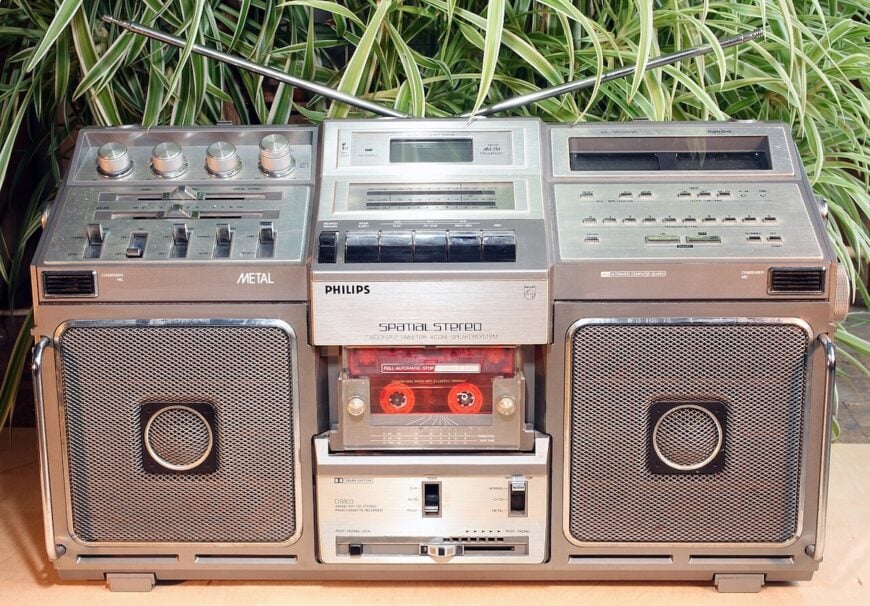
Home Stratosphere Guide
Your Personality Already Knows
How Your Home Should Feel
113 pages of room-by-room design guidance built around your actual brain, your actual habits, and the way you actually live.
You might be an ISFJ or INFP designer…
You design through feeling — your spaces are personal, comforting, and full of meaning. The guide covers your exact color palettes, room layouts, and the one mistake your type always makes.
The full guide maps all 16 types to specific rooms, palettes & furniture picks ↓
You might be an ISTJ or INTJ designer…
You crave order, function, and visual calm. The guide shows you how to create spaces that feel both serene and intentional — without ending up sterile.
The full guide maps all 16 types to specific rooms, palettes & furniture picks ↓
You might be an ENFP or ESTP designer…
You design by instinct and energy. Your home should feel alive. The guide shows you how to channel that into rooms that feel curated, not chaotic.
The full guide maps all 16 types to specific rooms, palettes & furniture picks ↓
You might be an ENTJ or ESTJ designer…
You value quality, structure, and things done right. The guide gives you the framework to build rooms that feel polished without overthinking every detail.
The full guide maps all 16 types to specific rooms, palettes & furniture picks ↓
Alabama kids in the ’80s had their ears glued to whatever Top 40 station ruled their city. In Birmingham, you might have blasted Kicks 106 (WVOK-FM) or I-95 (WAPI-FM). Down in Huntsville, WZYP 104.3 kept teenagers wired into the pop charts, while in Montgomery it was WLWI 92.3 carrying Casey Kasem’s countdowns. Even Mobile and the Gulf Coast had their own hit machines, like WKRG-FM (G-100).
The DJs weren’t faceless voices—they were part of the community, hyping high school games, reading birthday shout-outs, and slipping in local ads between the latest Madonna or Prince track. Every city had its own radio identity, but all of them gave Alabama kids the same thrill: a direct pipeline to pop culture without leaving the state.
You’d tape songs off the air, make your own mix cassettes, and compare notes with friends from other towns about which station had the best playlists. Local radio was the connective tissue between small-town Alabama and the bigger musical universe.
18. Hunted for Arrowheads in Plowed Fields
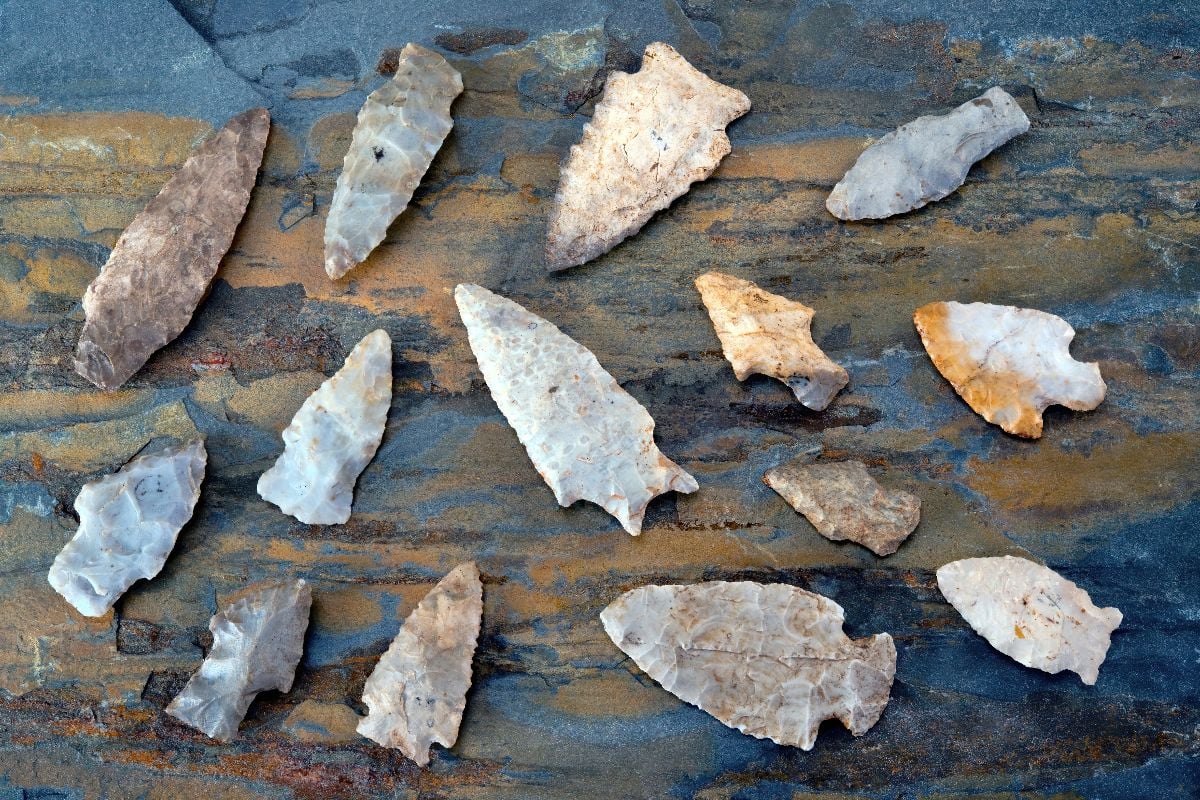
Alabama’s rich Native American history meant that plowed fields sometimes revealed genuine artifacts that connected you to people who’d lived on the same land centuries earlier. Arrowhead hunting was history class combined with treasure hunting.
You’d walk through recently plowed fields after rain, scanning the turned earth for the distinctive shapes of stone tools and weapons. Finding a genuine arrowhead felt like discovering buried treasure and connecting with ancient Alabama residents.
This taught you Alabama history, archaeology, and the patience required for systematic searching. Plus, you developed an eye for recognizing man-made objects among natural stones and debris.
17. Rode the School Bus to High School Football Games
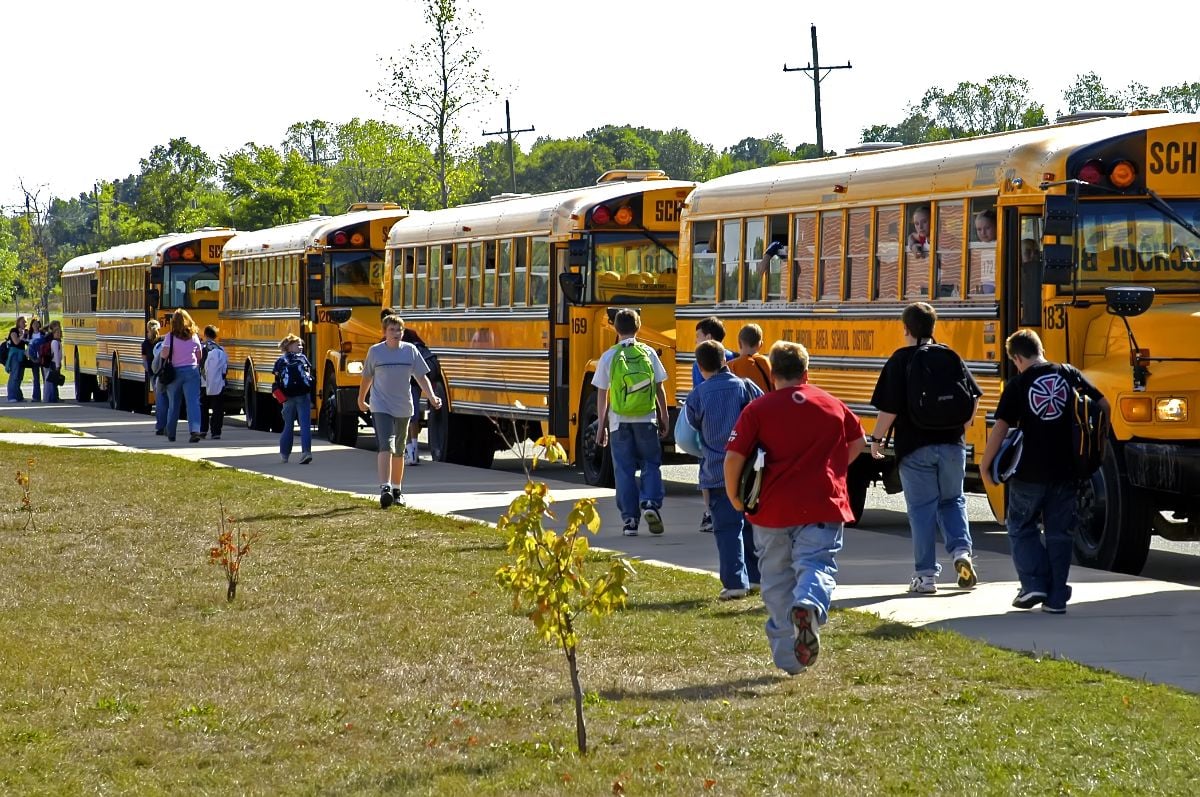
Friday night football wasn’t just entertainment—it was community religion, and getting to ride the activity bus to away games felt like joining a sacred pilgrimage. You’d pile onto school buses with friends, cheerleaders, and band members for road trips to other Alabama towns.
The bus rides were social events where you’d sing songs, tell jokes, and feel part of something bigger than just watching a game. Away games meant seeing other Alabama communities and comparing their facilities to your hometown’s.
High school football bus trips taught you Alabama geography, community pride, and the bonding power of shared experiences. Plus, you felt grown-up traveling with the high school crowd even though you were still in middle school.
16. Collected Alabama Crimson Tide or Auburn Memorabilia
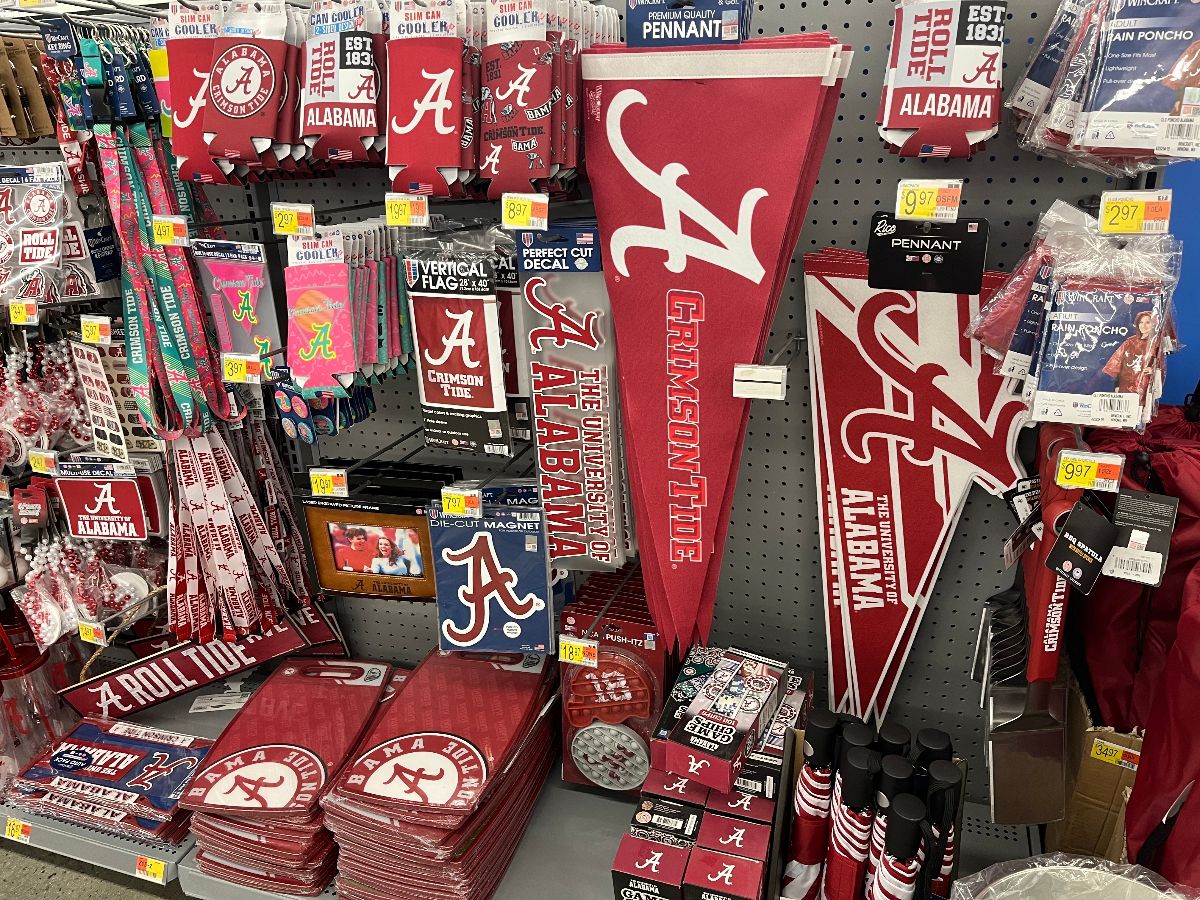
You weren’t just a casual fan—you were either Crimson Tide or Auburn, and this choice affected your entire identity, family relationships, and social standing. Collecting team memorabilia was serious business that started young and lasted forever.
You’d save allowance money for official merchandise, trade items with friends, and treat team paraphernalia like religious artifacts. Pennants, buttons, stickers, and anything else with your team’s logo became precious possessions that declared your loyalty.
The Alabama-Auburn rivalry wasn’t just about football—it was about state identity, family traditions, and personal character. Your team choice said something fundamental about who you were as an Alabama person.
15. Picked Muscadines from Wild Vines
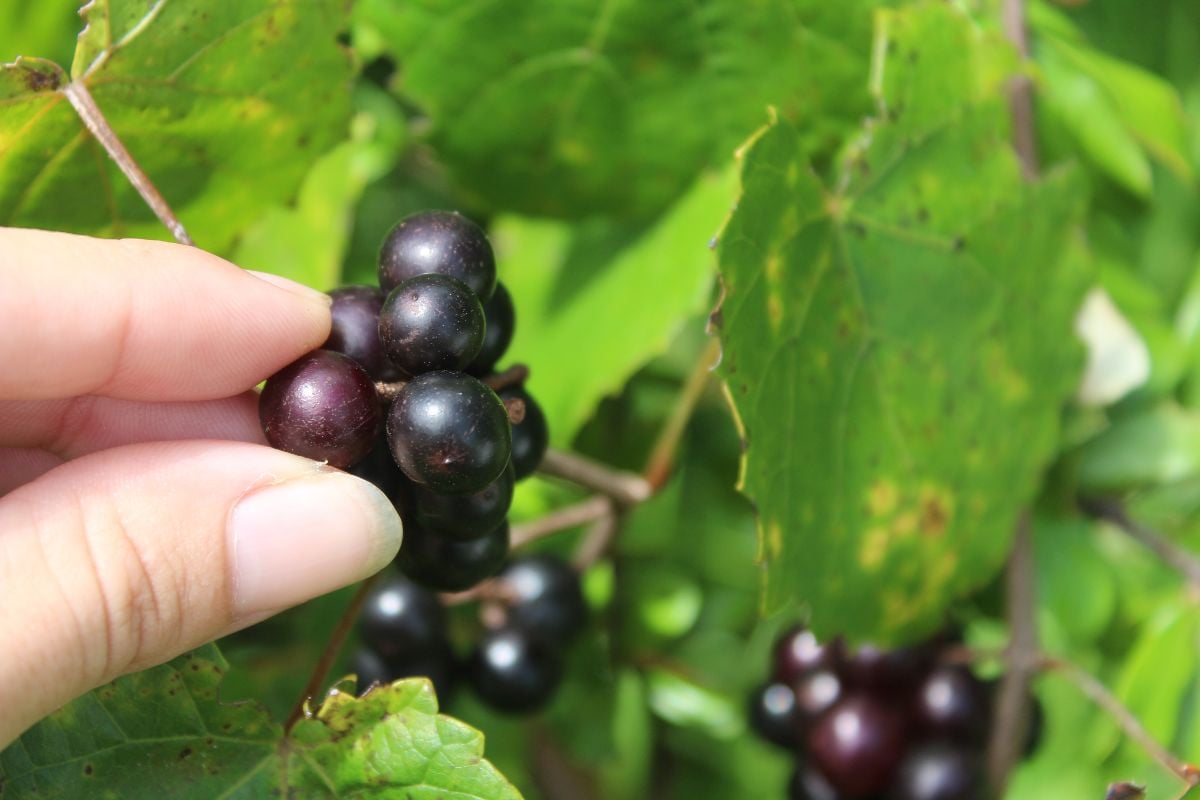
Alabama muscadine vines produced fruit that tasted like concentrated summer, and finding good muscadine patches became secret knowledge you’d guard and share carefully. You’d spend late summer afternoons harvesting wild grapes that were sweeter than anything from stores.
Muscadines required technique—you had to know when they were ripe, how to pick them without getting scratched by thorns, and which vines produced the best fruit. It was foraging that felt like treasure hunting.
Wild muscadines connected you to Alabama’s agricultural heritage and taught you that some of the best food came free if you knew where to look and weren’t afraid to get a little scratched up in the process.
14. Built Tree Houses in Pine Trees
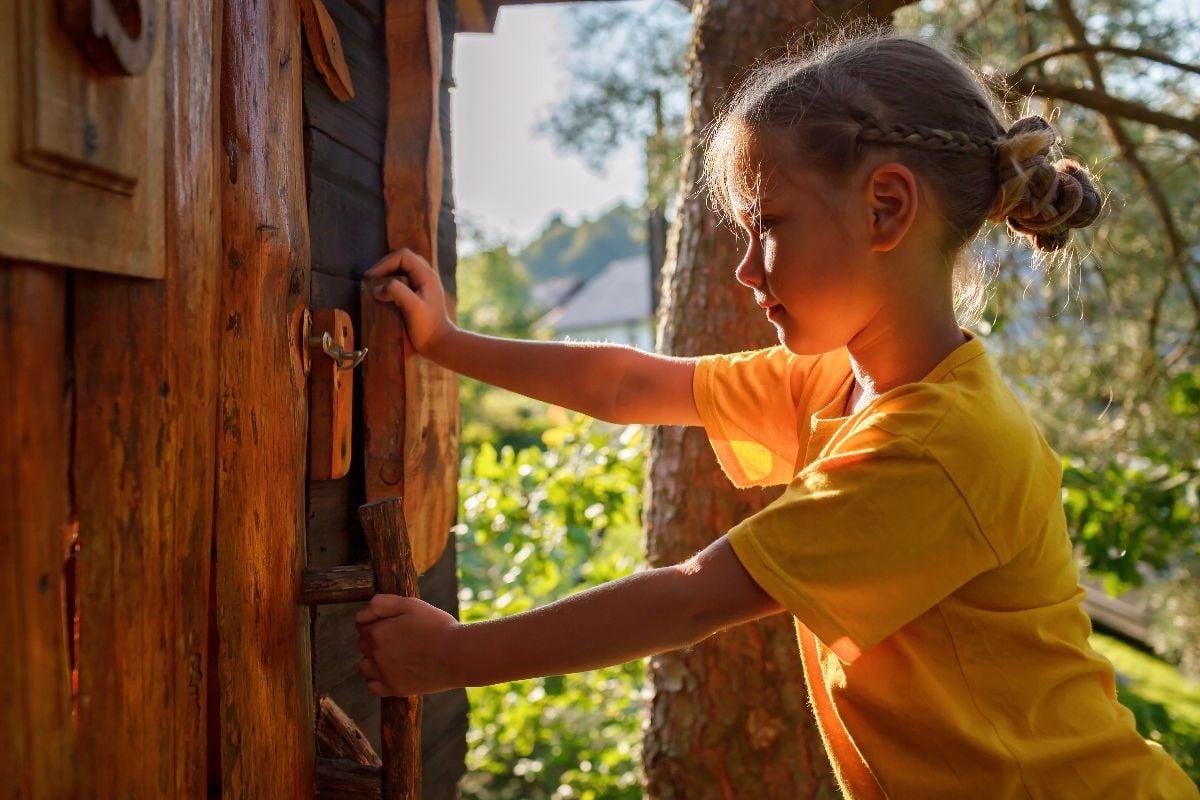
Alabama pine trees were perfect for tree house construction—straight trunks, strong branches, and enough height to create genuine elevated hideouts that felt like secret kingdoms. You’d spend weeks planning and building structures that would last for years.
Pine tree construction required learning basic carpentry, understanding weight distribution, and accepting that some building materials would have to be “borrowed” from construction sites or friendly neighbors. Tree houses were engineering projects disguised as play.
Your tree house became a headquarters for clubs, a storage for treasures, and an escape destination when you needed privacy. Alabama pines provided the perfect foundation for childhood architecture projects.
13. Played Flashlight Tag in Neighborhoods
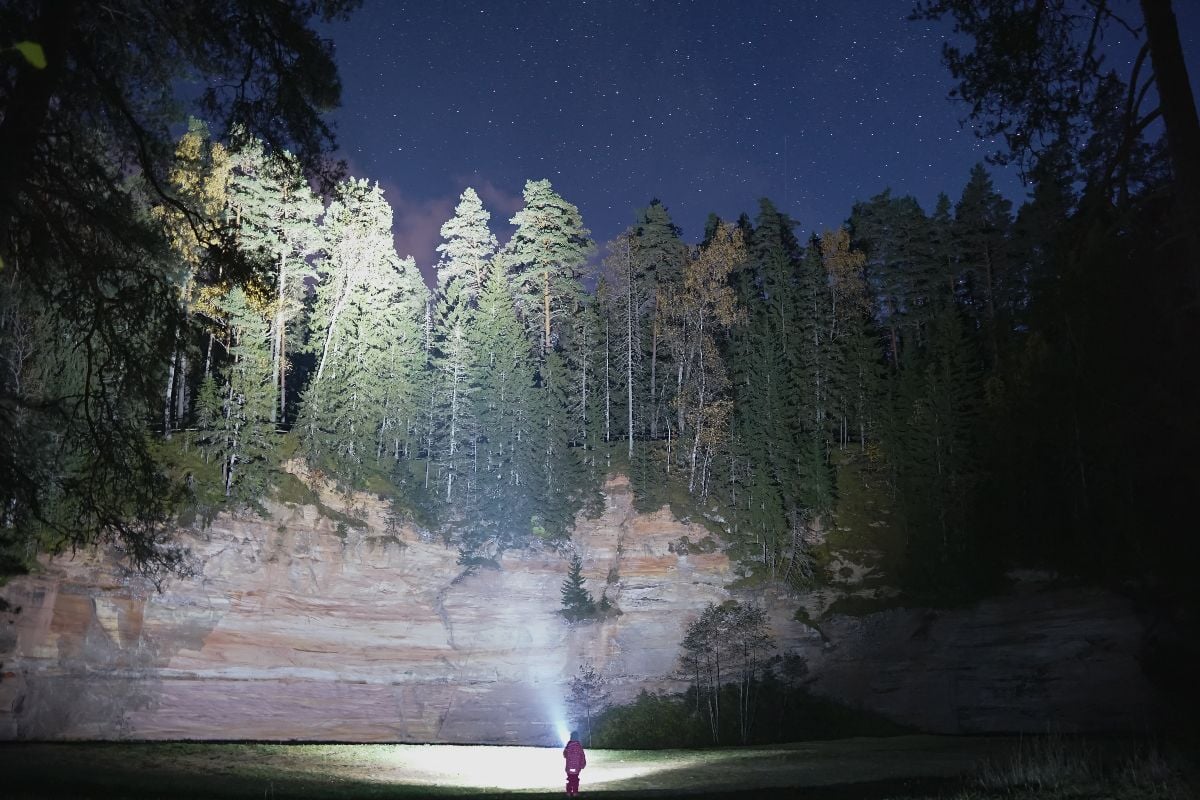
Before video games dominated evening entertainment, flashlight tag turned entire neighborhoods into game boards where you’d run through backyards, hide behind cars, and create elaborate strategies for avoiding being “it.”
Alabama neighborhoods in the ’80s felt safe enough for kids to roam freely after dark, and flashlight tag took advantage of that freedom. You’d play for hours, covering territory that would make modern parents nervous.
The game required stealth, strategy, and intimate knowledge of your neighborhood’s hiding spots. You’d learn every shortcut, secret passage, and escape route within a six-block radius.
12. Fished in Ponds Using Cane Poles
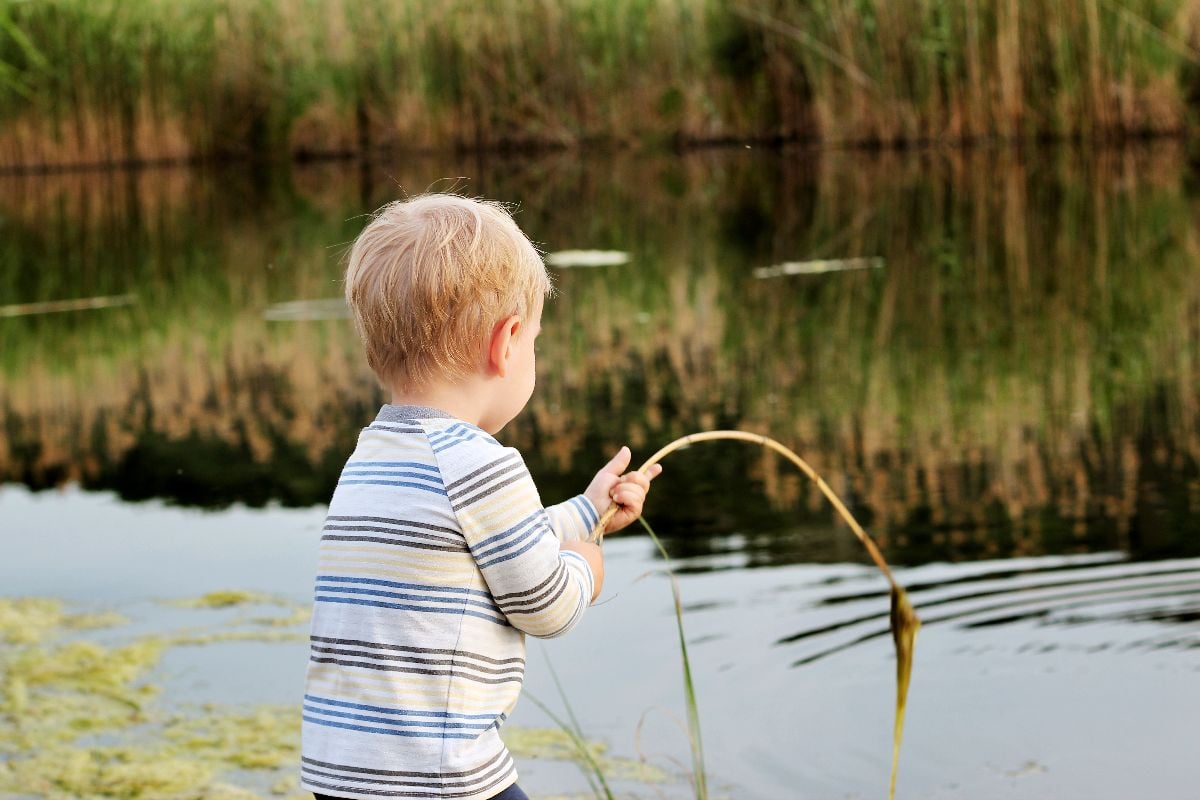
Alabama farm ponds were everywhere, and most farmers didn’t mind kids fishing as long as you asked permission and didn’t cause trouble. Cane pole fishing was simple, effective, and perfectly suited to Southern pond fishing.
You’d dig for worms, cut a cane pole from bamboo growing wild, and spend hours trying to catch bass, bream, or catfish using techniques that hadn’t changed in generations. Pond fishing was meditation disguised as sport.
Successful pond fishing required understanding fish behavior, bait selection, and the patience to sit quietly for extended periods. You’d learn which ponds had the best fish and which landowners were most generous with fishing permission.
11. Walked to the Corner Store for Penny Candy
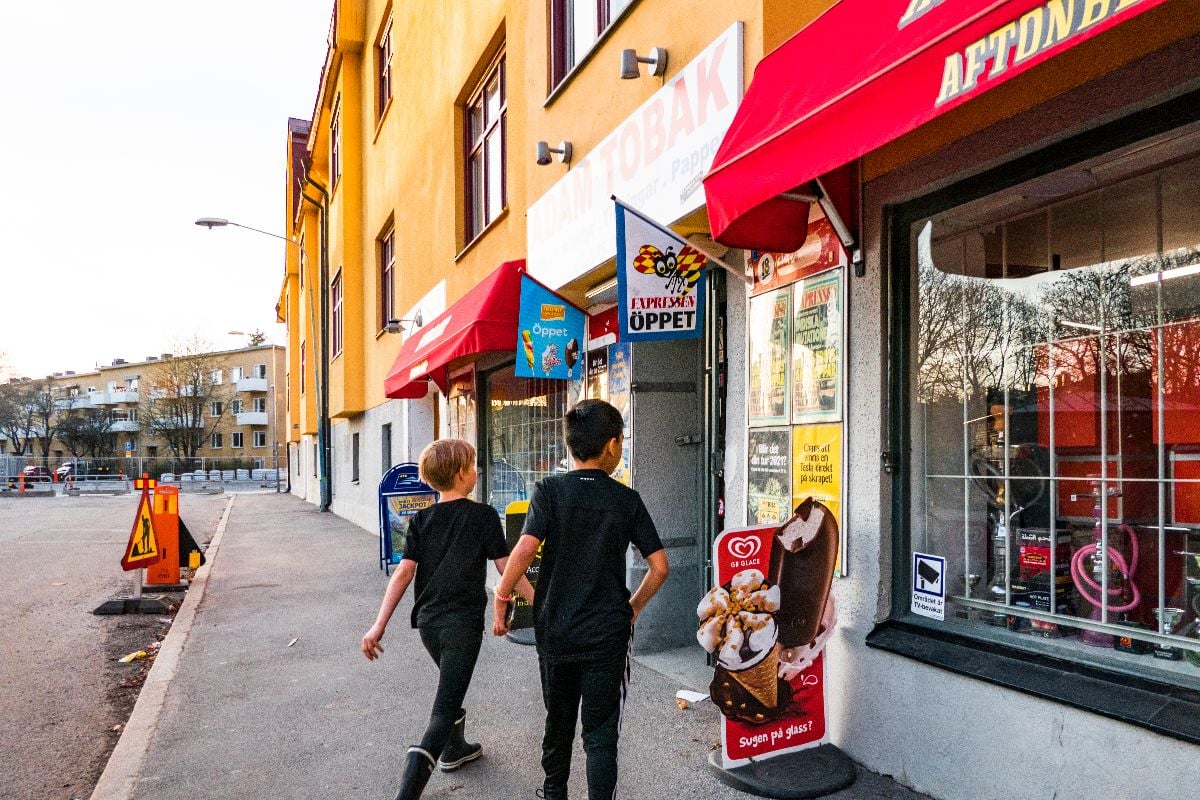
The corner store wasn’t just convenient shopping—it was your introduction to economics, decision-making, and the art of making limited money stretch as far as possible. Penny candy required serious mathematical calculation and impulse control.
You’d count your allowance carefully, study the candy selection like a strategic investor, and make purchasing decisions that would affect your happiness for the entire afternoon. Swedish fish versus Tootsie Rolls became serious philosophical choices.
Corner stores felt like community centers where you’d see neighbors, learn local gossip, and feel like a legitimate customer even though you were only spending fifty cents. The store owners knew your name and your candy preferences.
10. Rode in the Back of Pickup Trucks
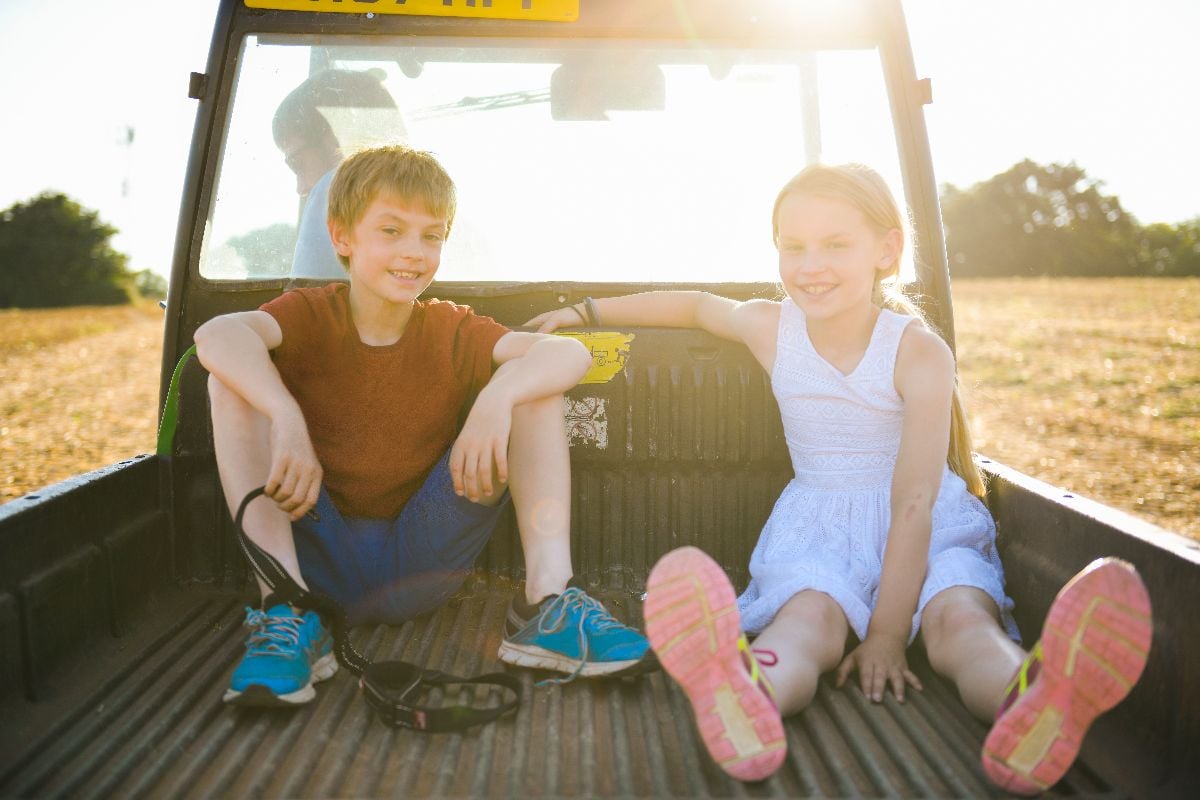
Before safety regulations and helicopter parenting, riding in truck beds was standard transportation for Alabama kids. You’d pile into the back of pickup trucks for trips to swimming holes, ball games, and wherever else groups needed to travel.
Truck bed riding required balance, awareness, and the understanding that holding on was your responsibility. You’d learn to read driver behavior, anticipate turns, and position yourself for maximum safety and comfort.
This taught you self-reliance, risk assessment, and the pleasure of outdoor transportation. Plus, riding in truck beds gave you better views of the Alabama countryside and made every trip feel like an adventure.
9. Attended County Fairs and Livestock Shows
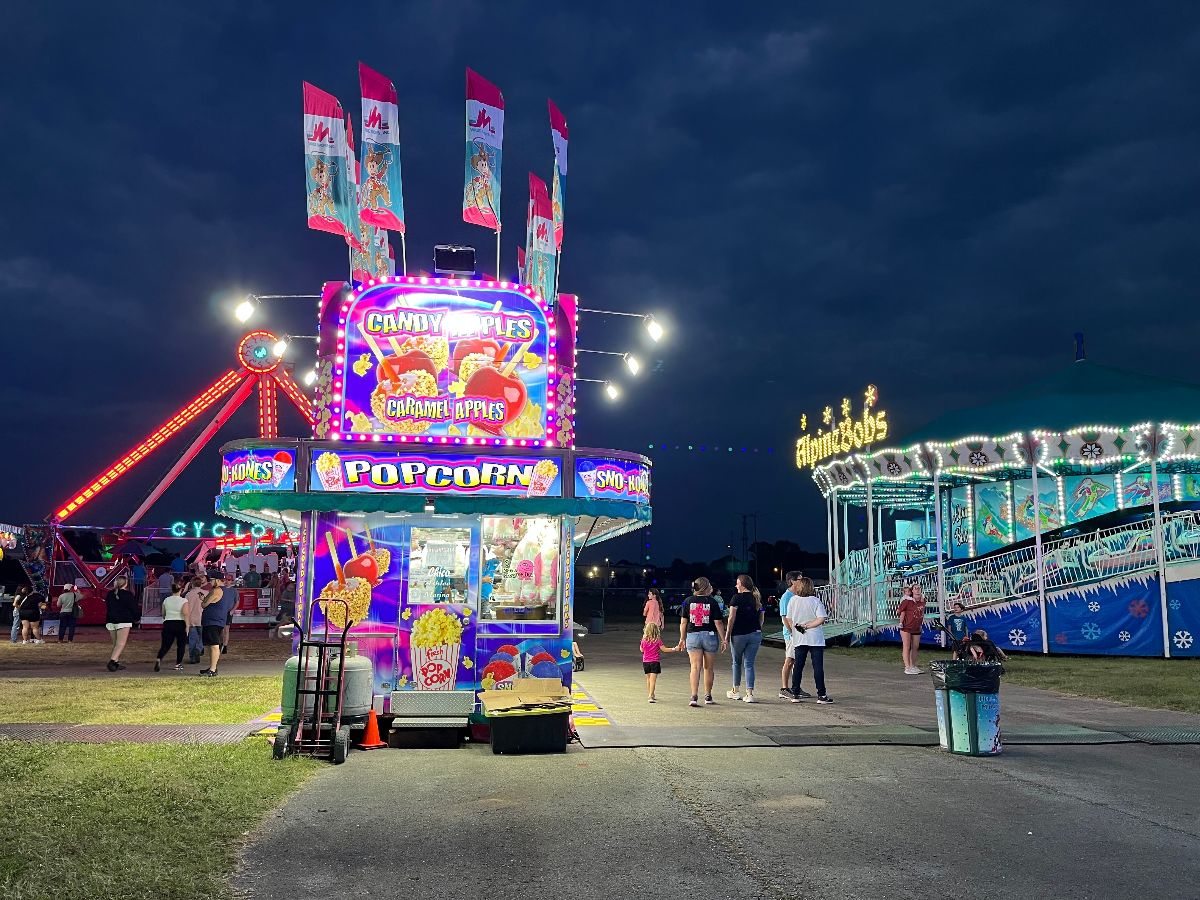
Alabama county fairs were community celebrations that combined agriculture, entertainment, and social events into week-long festivals that brought entire communities together. You’d attend with family and friends for experiences that felt uniquely Southern.
The livestock shows taught you about agriculture, animal husbandry, and the hard work that rural families put into farming. You’d see prize-winning cattle, pigs, and poultry while learning about Alabama’s agricultural heritage.
County fairs provided entertainment that felt authentic and community-centered rather than corporate and commercial. The rides were questionable, the food was terrible for you, and somehow everything was perfect.
8. Played Hide and Seek in Corn Fields
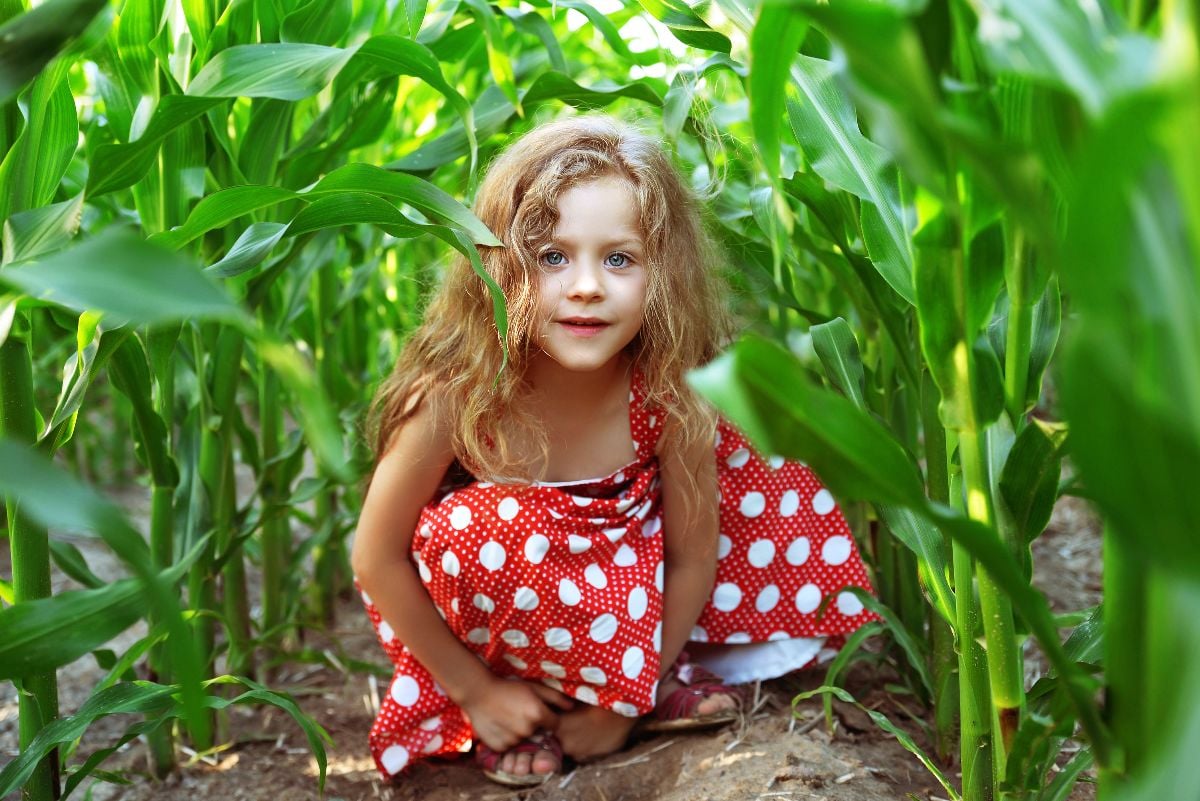
Alabama corn fields provided the ultimate hide-and-seek venues with enough space and cover to create games that lasted for hours. You’d disappear into corn rows and create elaborate hiding strategies that required genuine skill to execute successfully.
Corn field games taught you navigation, stealth, and the importance of staying oriented so you could find your way out. Getting lost in a corn field was a real possibility that added genuine excitement to childhood games.
Farmers generally tolerated kids playing in their fields as long as you didn’t damage crops or cause problems. Corn field hide-and-seek was rural Alabama childhood at its finest.
7. Watched Wrestling on Saturday Mornings
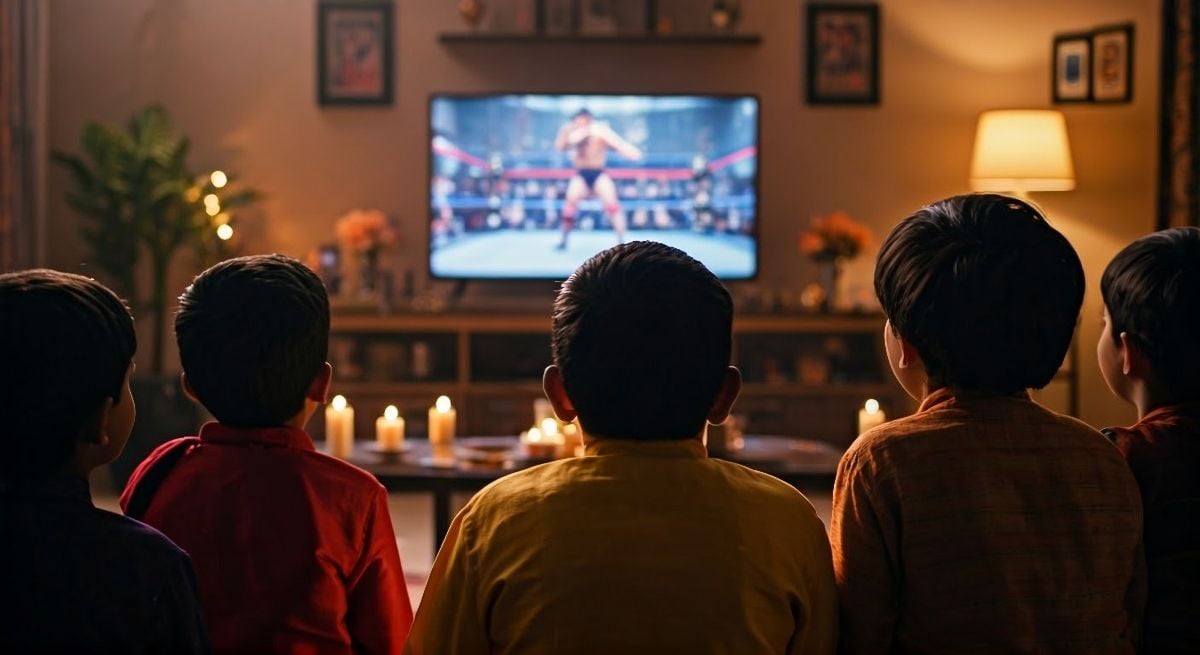
Would you like to save this?
Saturday morning wrestling wasn’t just entertainment—it was theater, athletics, and community bonding rolled into weekly television events that brought families together around shared heroes and villains.
You’d cheer for good guys, boo villains, and debate whether wrestling was real or fake without caring enough about the answer to ruin the fun. Wrestling provided drama and excitement that felt more engaging than most other television programming.
Alabama wrestling fans developed loyalties and opinions that lasted for years. You’d follow storylines, anticipate matches, and feel genuine investment in outcomes that were probably predetermined but emotionally satisfying.
6. Explored Abandoned Houses and Barns
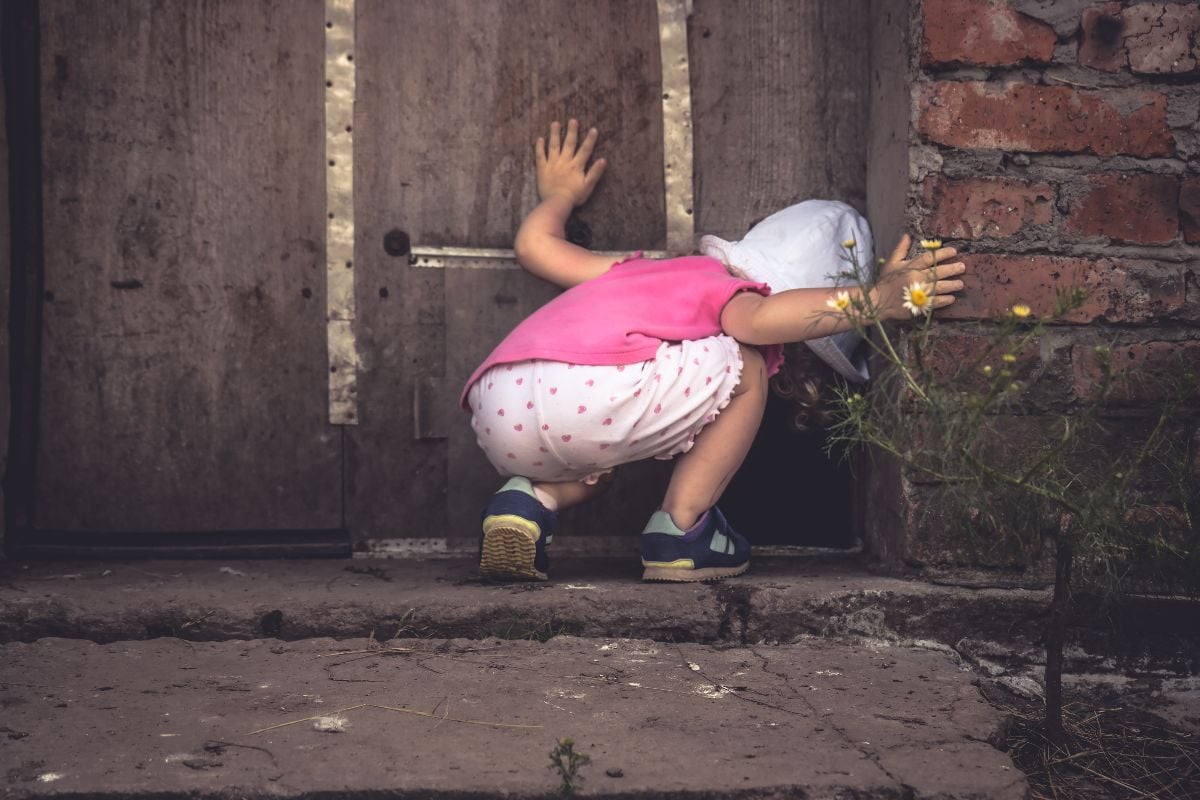
Alabama’s rural landscape was dotted with abandoned buildings that became adventure destinations for kids brave enough to explore structures that were probably unsafe but irresistibly mysterious.
You’d find old houses, barns, and outbuildings that told stories about previous residents and Alabama’s agricultural history. Exploring required courage, curiosity, and the understanding that you were probably trespassing, but unlikely to get in serious trouble.
Abandoned building exploration taught you Alabama history, architecture, and the satisfaction of discovering places that felt like secret knowledge. Plus, you’d sometimes find interesting artifacts that connected you to previous generations.
5. Made Sweet Tea Using Your Grandmother’s Recipe

Learning to make proper sweet tea was a rite of passage that connected you to Alabama traditions and family heritage. You’d learn the exact ratio of tea to sugar, the proper steeping time, and the importance of adding sugar while the tea was still hot.
Sweet tea wasn’t just a beverage—it was liquid hospitality and cultural identity. Making good sweet tea meant understanding Alabama values and carrying forward traditions that defined Southern living.
You’d practice until you could make sweet tea that met family standards, then teach the recipe to friends who appreciated genuine Alabama refreshment. Sweet tea making was cooking education disguised as beverage preparation.
4. Attended Church on Sunday and Wednesday
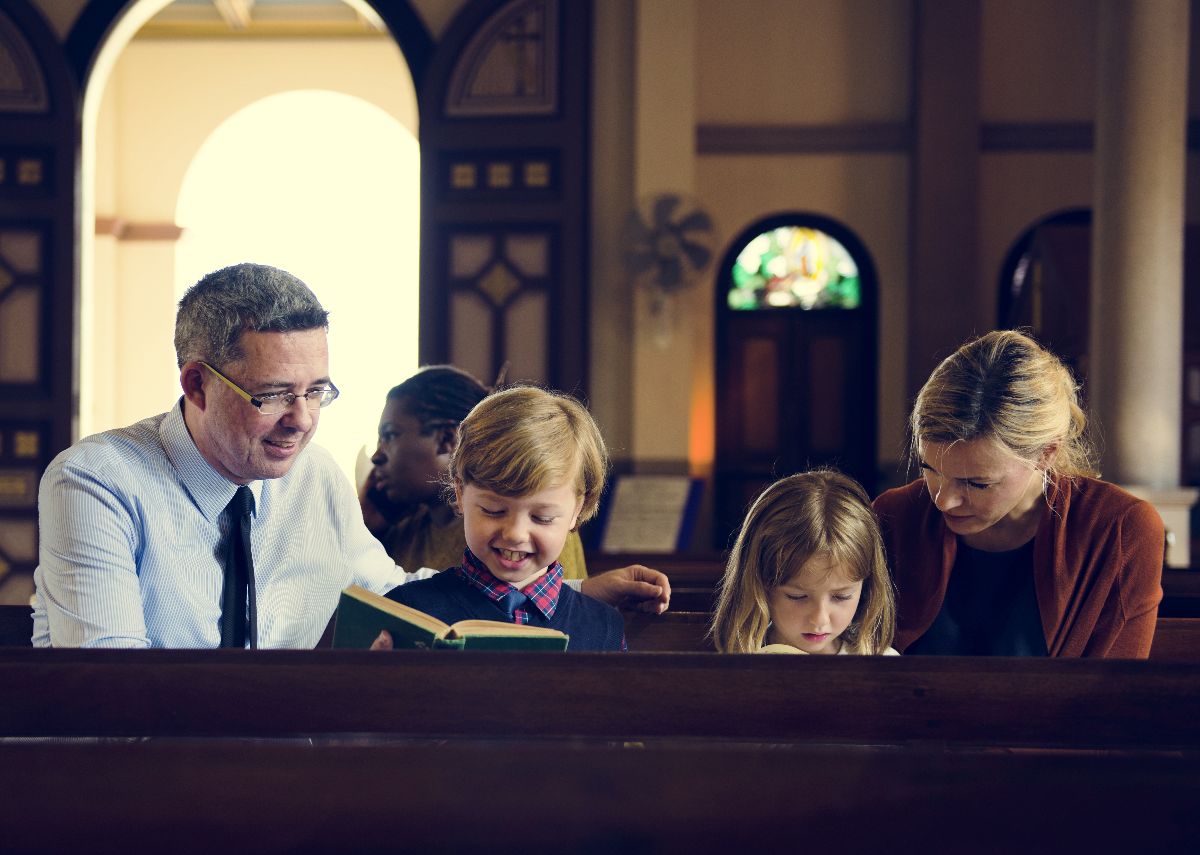
Church attendance wasn’t optional—it was community participation that connected you to Alabama’s religious and social traditions. Sunday morning and Wednesday evening services were social events that brought neighborhoods together.
You’d dress up, see friends, and participate in activities that taught you Alabama values, community responsibility, and social skills. Church was an education that covered morality, music, and social interaction.
Church communities provided safety nets, social connections, and cultural continuity that shaped Alabama identity. You’d learn to sing hymns, participate in group activities, and understand your place in the larger community.
3. Helped with Family Gardens and Canning
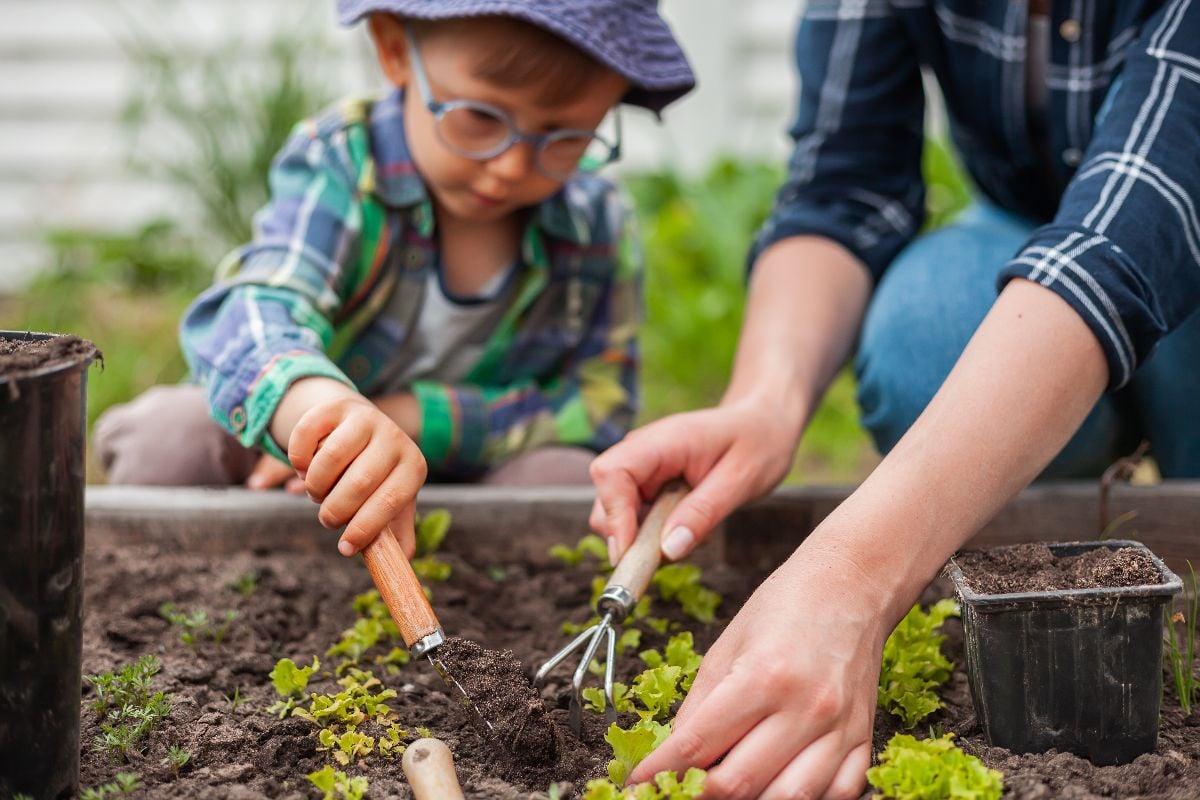
Alabama families often maintained large gardens that provided fresh vegetables and taught kids about agriculture, nutrition, and self-sufficiency. You’d help plant, tend, and harvest crops that would feed your family throughout the year.
Canning season meant learning preservation techniques that connected you to generations of Alabama families who’d grown and preserved their own food. You’d help prepare vegetables, sterilize jars, and store preserved food for winter consumption.
Garden work taught you the connection between effort and results, the satisfaction of eating food you’d grown yourself, and appreciation for the work required to feed families. Plus, you’d learn which vegetables grew best in Alabama soil and climate.
2. Learned to Drive on Back Roads at Age 14
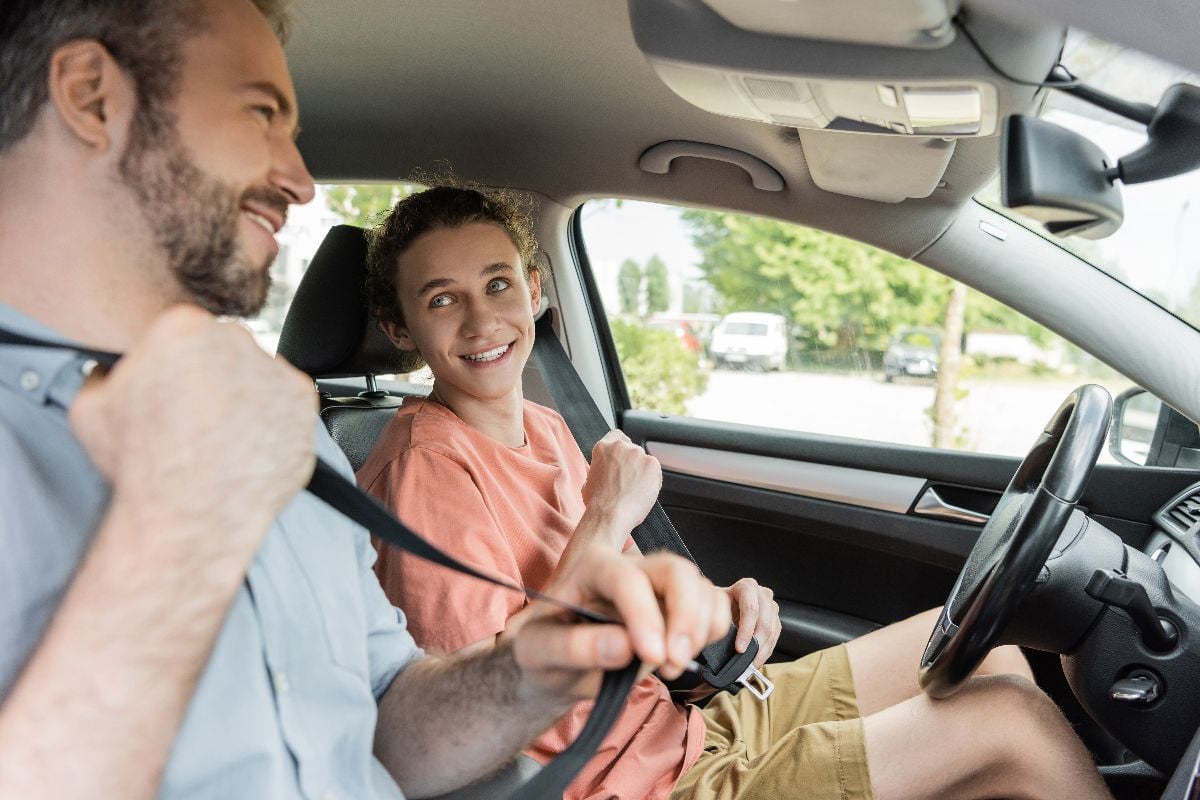
Alabama back roads provided perfect driving instruction venues where you could learn vehicle operation without traffic, police, or safety regulations that made driving lessons stressful. You’d start driving years before getting an official license.
Family members would teach you clutch operation, steering, and basic vehicle control using farm trucks or family cars on private property and empty rural roads. Learning to drive meant gaining independence and adult responsibility.
Early driving education taught you mechanical understanding, spatial awareness, and confidence that served you well when you eventually got a legal license. Plus, you’d learn Alabama geography through direct navigation experience.
1. Understood That “Bless Your Heart” Could Mean Anything
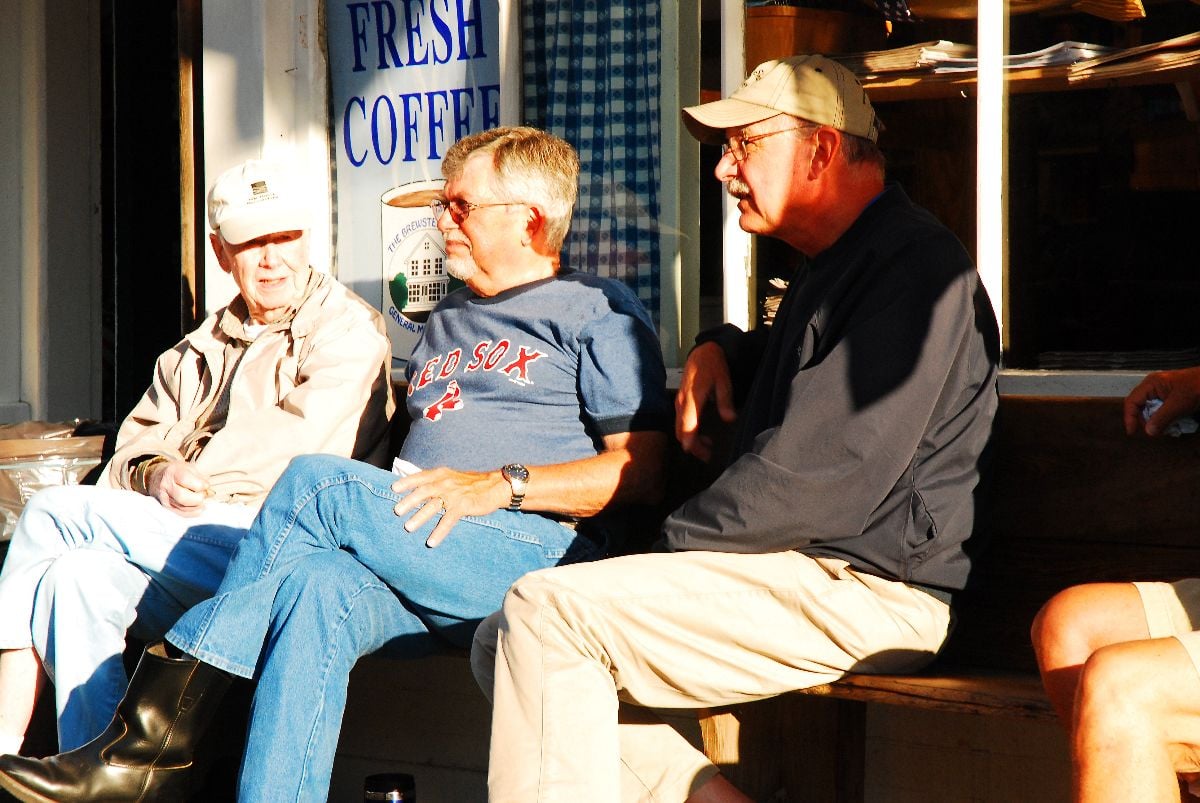
The ultimate Alabama childhood lesson was learning to decode “bless your heart”—a phrase that could express genuine sympathy, polite insult, or affectionate condescension depending on context, tone, and relationship between speaker and listener.
You’d hear adults use this phrase in conversations and gradually understand that Southern politeness involved layers of meaning that required cultural literacy to interpret correctly. “Bless your heart” was diplomacy disguised as sympathy.
Mastering this linguistic complexity taught you that Alabama communication involved subtlety, respect for feelings, and the art of saying difficult things in ways that preserved relationships. It was cultural education that prepared you for adult Southern social interaction.
Understanding ‘bless your heart’ meant you’d mastered Alabama’s social code — clear enough to say what mattered, polite enough to keep the peace, and subtle enough to survive any front-porch conversation.

